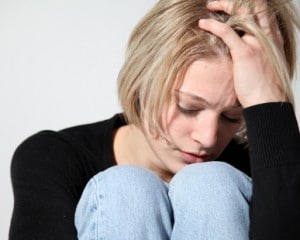How to Increase Labido, Lebido, or Libido
Are you searching for information to increase labido or lebido? If so, the first thing you need to know is that it is spelled “libido”. Libido is a fancy term for sex drive. There are many causes for low libido. So before you can increase your libido, you need to know why your libido is low.
Libido can be adversely affected by certain medications, chronic disease, substance abuse, psychological issues, and hormonal changes.
Libido Lowering Medications
Medications that reduce libido include the anti-depressants called SSRIs or selective serotonin reuptake inhibitors. Clonidine, a blood pressure medication, reduces libido, and the ACE inhibitors, or angiotensin-converting enzyme inhibitors, prescribed to treat high blood pressure, can cause erectile dysfunction. Birth control pills can also lower libido by producing SHBG, or sex hormone binding globulin, which binds to testosterone effectively lowering free testosterone levels. Testosterone is the main libido hormone, or the “hormone of desire” in both men and women. Low libido is frequently seen with low testosterone levels.
Medications prescribed to men for enlarged prostate (Proscar) can lead to diminish libido. Propecia, a medication to help prevent thinning hair, is chemically identical to Proscar and therefore can adversely affect libido, too.
So if you think your low libido could be related to a medication, ask your doctor if you can try a lower dose, switch to a different medication, or possibly discontinue the medication, but don’t stop a medication without consulting with your physician. Exercise can improve mood and lower blood pressure sometimes enough that medications to treat those conditions may not be necessary.
Chronic Disease: Not Good for Libido
Diabetes, especially when poorly controlled, heart disease, hypertension, obesity, and auto-immune diseases can all decrease sexual desire. This change in desire can be related to the disease itself or to the medications used to treat the disease (see above). To minimize the effects of these diseases on libido it is essential that they each be optimally treated.
Substance Abuse: Trading One Pleasure for Another
Substance abuse affects libido a couple different ways. Substance abuse can adversely affect hormone levels. Chronic use of narcotic pain medication lowers testosterone, which again is the “hormone of desire”. Substance abuse can impair one’s ability to sexually perform, as in the case of alcohol, and substance can impair or cloud a person’s thinking to such a degree that sex is not a priority or a concern.
Psychological Issues
Stress can adversely affect libido, and unfortunately, stress can be found everywhere, from the little frustrations of everyday life to the major life changing events. We can all use improvement in our ability to cope, manage, and prevent stress in our lives. Seek help if stress is overwhelming your life.
Declining Hormone Levels
For many men and women, low libido can at least be partially attributed to declining hormone levels. As mentioned testosterone is the main hormone affecting libido, but in women estrogen also plays a role. Our sex hormones (testosterone, estrogen, and progesterone) decline as we age, and that decline usually starts in our 30s.
Other symptoms are often present when sex hormones are low. See “Low Testosterone Symptoms”, “Low Estrogen Symptoms: Who Wants Them?”, and “Avoid Symptoms of Low Progesterone“.
In men and women suffering from low libido and the other symptoms consistent with low testosterone, testosterone replacement therapy is frequently beneficial. In women, it is usually necessary to also replace estrogen and progesterone. It is essential to see a physician and undergo a physical examination and have laboratory studies to measure hormone levels and to rule out other possibilities that might cause low libido before embarking on hormone replacement therapy.
Also see the following.

I am now 7 years in menopose and do not have any interest in sex. This is a huge problem for me PLEASE HELP
Louise, I would recommend you see a physician who specializes in bio-identical hormone evaluation. We have a limited directory (still constructing it), but it is found under the “Aging Process” navigation button and put in your state and find a physician near you.
Can’t feel anything while meeting my man
Read these 2 articles of ours. https://jackomd180.com/low-libido-women-come-to-your-senses/ and https://jackomd180.com/low-libido-women-harsh-reality/